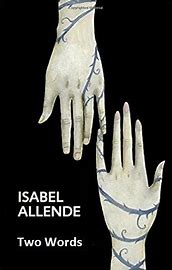Physical Address
304 North Cardinal St.
Dorchester Center, MA 02124
Physical Address
304 North Cardinal St.
Dorchester Center, MA 02124

“Two Words,” in The Stories of Eva Luna (Isabel Allende, 1989)
Isabel Allende blends magical realism with Latinx literature in this short story across multiple themes. This story follows the life of Belisa Crepuscalario. She was born in poverty and in poor land-living conditions, including high floods times of drought and starvation. By the time she was 12 she had outlive and buried her siblings. To avoid being next, she sought out for unknown endeavors for hopes of greater opportunity, or at least surviving. Along the way she discovers words in a newspaper and decided she could make a respectable living for herself, by selling her words, ultimately, saving her life. She set up booth at markets and fairs to serve her many returning customers.
Throughout the story, Isabel Allende blends the magical realism with the power of imagination by displaying magical abilities as a form of witchcraft, when in reality, Belisa is battling the mundane task of earning money for practical survival, she develops a knack and works to improve her very real skill, to use the power of words and produce written works for profit.
“Five centavos she delivered versus from memory, for seven improved the quality of dreams, for nine, she wrote love letters, for 12 she invented insults for irreconcilable enemies. She also sold stories, not fantasies, but long true stories, and recited in one telling. This is how she carried news from one town to another, people paid her to add a line or two; our son was born, so and so died, etc., for 50 centavos she gave the gift of a secret word to drive away melancholy, it was not the same word for everyone”
The colonel sent for Belisa to be kidnapped. He needed her services, her incredible diction for words could produce a speech so great for campaigning, surely he would become present. The colonel displayed his desire for connection by questioning his identity and choosing to change the narrative of how he is perceived by others, to escape his isolation.
“He longed to ride into town beneath a triumph arc with bright flags and flowers. Everywhere he wanted to be cheered and be given newly laid eggs and freshly baked bread. Men flood at the side of him children trembled, and woman miscarried from fright. He had had enough, and so he decided to become president. “
